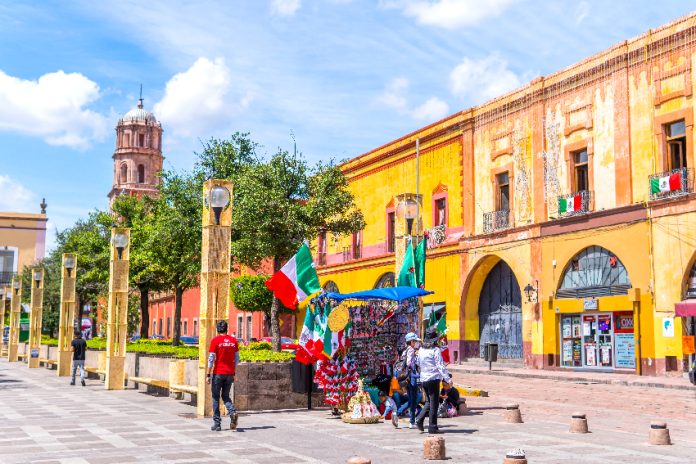Steven Joseph believed he was a person free from prejudice.
It wasn’t until he was walking the streets of Mexico and caught himself making racist jokes in his head that he immediately froze and questioned this belief.
Why would he think of such jokes in the first place?
Joseph grew up as a “poor white guy in a Latino community” in Riverside, California and had been exposed to Latino culture from an early age. He saw friends begin their gang initiation rites the moment they turned 18 years-old.
Because Riverside is home to a sizable Latino population, he believed he understood enough about the community and culture.
Years later, during a rough patch, he decided to leave the U.S. for a short trip. He called up an old friend in Querétaro, Mexico, and asked to stay with her for two weeks one September.
He slept on a children’s mattress in small quarters, but then he saw the parades of Mexico’s Independence Day celebrations in the city’s historic center with men in sombreros, children eating churros and everyone listening to live music. Those two weeks turned into six months, when his visa expired.
After submitting the formal documents to become a temporary resident, Joseph moved right back to Querétaro at the end of 2015, and has lived in Mexico ever since.
“I moved here completely ignorant,” Joseph said. “I knew nothing about the culture and I spoke very little Spanish besides numbers, colors, a handful of verbs, and the menu from Taco Bell.”
Joseph defines culture as “a collection of things that we know and believe without ever having thought about them.”
That moment on the street was his turning point. He was determined to maintain humility to overcome those lingering internal prejudices.
“These are not my beliefs, this is not who I am,” he said. “It’s cultural. These are the jokes that I heard growing up that are part of my belief system without even knowing it.”
He traveled across various states in Mexico, the U.S. and provinces in Canada, staying long enough to observe contrasts between cultures, such as the so-called “Seattle Freeze” versus Querétaro’s warm and inviting culture.
“There’s no perfect culture,” he said. “Through all these different cultures you visit, there’s things that you’ll hate and things that you’ll like. The best thing I can do is get rid of the parts of the culture that I don’t like about myself, and adopt the parts I do like.”
During his exploration of cross-cultural differences, he decided to share his insights with his community in Querétaro.
Together with friends, he founded Speakeando, a social club where both international and local people can converse in either English or Spanish (or Spanglish) over coffee.
“I know about giving up norms, learning, seeing and adapting to different perspectives, and it’s one of the things I love to teach when people show up to the club,” he said. “We have to be open to all differences, not just acknowledging and accepting them but trying to understand why they exist in the first place.”
Joseph found community in Querétaro and recently purchased a house there.
“I fit in more here,” he said. “The things that I want and like in a culture, neighbors and friends [are here] … this is the place that feels best for me.”
This article was written by Lizbeth Solorzano, a journalism student at the University of Oregon program, as part of a study abroad program in Querétaro, Mexico.
